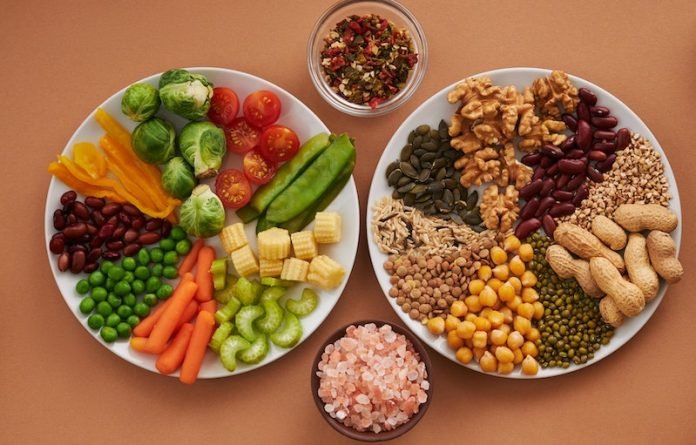
In a study from the Physicians Committee, scientists have found that following a vegan diet that is high in legumes could be an effective way to lose weight.
A vegan diet consists only of plant-based foods like vegetables, fruits, grains, and nuts, and avoids all animal products, including dairy and eggs.
Legumes, which include beans, peas, and lentils, are a versatile and nutritious food group that is high in nutrients like folate, potassium, iron, and magnesium, and low in fat and cholesterol.
Previous research has shown that different types of foods and nutrients can affect body weight, body fat, and insulin sensitivity, which refers to how sensitive the body’s cells are to insulin.
In the study, the researchers aimed to see how a low-fat vegan diet, with a focus on legumes, affects food group and nutrient intake, diet quality, and metabolic health.
The study involved 219 healthy adults in the Washington DC area who had a body mass index (BMI) between 28 and 40. They were assigned to either follow a low-fat vegan diet or make no diet changes.
The vegan diet provided approximately 10% of energy from fat and included weekly classes on plant-based nutrition.
The researchers found that people on the vegan diet had significantly increased their intake of fruits, vegetables, legumes, meat alternatives, and whole grains, while decreasing their intake of animal products, nuts, seeds, and added fats.
Increased legume intake was particularly associated with weight loss, while decreased intake of total meat, fish, and poultry was also linked to weight loss.
The low-fat vegan diet also led to increased intake of carbohydrates, fiber, and several micronutrients, as well as decreased fat intake.
Reduced fat intake was associated with reduced body weight and fat mass, and the vegan diet group had improved insulin sensitivity and better overall diet quality.
These findings suggest that a low-fat vegan diet high in legumes can be an effective way to lose weight and improve metabolic health.
By increasing intake of plant foods and reducing consumption of animal foods and added fats, individuals may be able to decrease body weight and improve fat loss, while also improving diet quality and overall health.
What to eat to lose weight effectively
Eating a healthy, balanced diet that is low in calories can help promote weight loss. Some examples of foods that can help with weight loss include:
Vegetables: Vegetables are low in calories, high in fiber, and packed with nutrients. They can help you feel full and satisfied, which can prevent overeating.
Fruits: Like vegetables, fruits are also low in calories, high in fiber, and packed with nutrients. They can also help satisfy your sweet tooth and prevent overeating.
Lean protein: Foods high in protein can help you feel full and satisfied. Some examples include chicken, turkey, fish, tofu, and beans.
Whole grains: Whole grains like brown rice, quinoa, and whole wheat bread are high in fiber and can help keep you feeling full for longer.
Low-fat dairy: Dairy products like skim milk, low-fat cheese, and Greek yogurt are high in protein and calcium, which can help you feel full and build muscle.
Water: Drinking plenty of water can help you stay hydrated and full, which can prevent overeating.
It’s also important to avoid or limit high-calorie, high-fat foods like fast food, fried food, sugary drinks, and sweets.
If you care about weight loss, please read studies that hop extract could reduce belly fat in overweight people, and early time-restricted eating could help lose weight.
For more information about weight loss, please see recent studies about diets that could boost your gut health and weight loss, and common diabetes drug can lead to better weight loss.
The research is published in the Journal of the Academy of Nutrition and Dietetics and was conducted by Hana Kahleova et al.
Copyright © 2023 Knowridge Science Report. All rights reserved.



